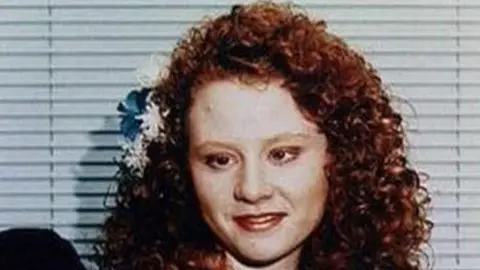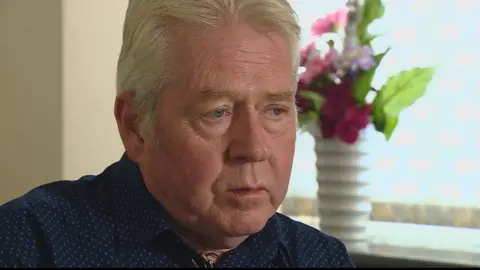Murdered teen Amanda Duffy 'never received justice'
 BBC
BBCThe family of a Lanarkshire teenager who was murdered 25 years ago have accused the Crown Office of a catalogue of failures in the case.
The body of Amanda Duffy, who was 19, was found on waste ground in Hamilton in 1992.
Francis Auld stood trial but the case was found "not proven" by a jury. An attempt to secure a retrial failed in 2016.
The Duffy Family have written to the Lord Advocate detailing their concerns.
Amanda's father, Joe Duffy said his daughter never received justice from the Crown Office in the case.
He said a review was needed of the "not proven" verdict in Scots law and of the wording of rules governing double jeopardy.
'False promises'
The legal implications of a not proven verdict are the same as with a not guilty verdict: the accused is acquitted and is innocent in the eyes of the law.
Double jeopardy rules introduced in 2011 mean that an accused who was once acquitted for a crime can be retried if they later admit their guilt or significant new evidence emerges.
Mr Duffy told BBC Scotland: "Over the years we've tried to keep our own counsel about the way they've dealt with it and tried to be quite discreet about it and had faith in them and in the promises that they were making, but every time, unfortunately, they were false promises.
"We feel that Amanda has never received justice and she's never going to receive justice now with the death of Francis Auld."

Mr Duffy also referred to failures throughout the case, including the loss of some original evidence and the decision not to use new DNA samples.
He also lamented a lack of communication between Police Scotland, the Crown Office and his family over the death of Francis Auld and claimed the Crown had been consistently underprepared in the run-up to double jeopardy court proceedings last year.
In 2016, judges at the Court of Criminal Appeal in Edinburgh rejected an attempt by prosecutors to submit new evidence.
The Crown wanted to rely on a conversation between a prison officer and Mr Auld, which took place sometime in June 1992.
The judges ruled that the new evidence was not admissible and could not be used and that the case could not go ahead.
In response to Mr Duffy's criticism, a Crown Office spokesman said: "We can confirm that a letter has been received from the family of Amanda Duffy.
"The Lord Advocate will give careful consideration to their letter before providing a full response."
